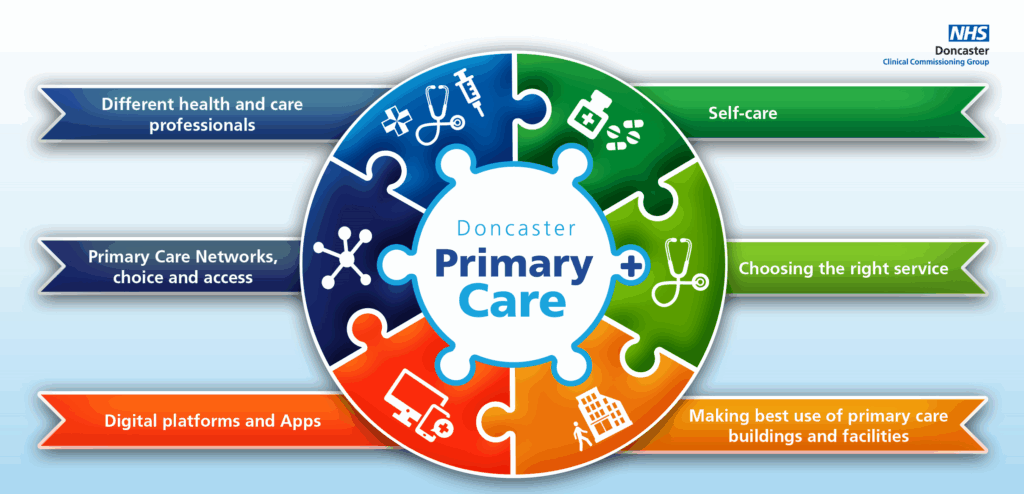When it comes to healthcare, many patients often hear the terms family medicine and primary care used interchangeably. While they share similarities, these two disciplines are not identical. At Local MD, we believe that understanding these distinctions empowers patients to make better decisions about their health and choose the right physician for their long-term well-being.
Understanding Primary Care
Primary care is the foundation of the healthcare system. It refers to the first point of contact between a patient and the healthcare network. A primary care provider (PCP) can be a doctor, nurse practitioner, or physician assistant who is trained to treat a wide range of medical concerns.
Primary care encompasses:
-
Preventive care such as annual checkups, screenings, and immunizations
-
Diagnosis and treatment of common illnesses and conditions
-
Management of chronic diseases like diabetes, asthma, and hypertension
-
Referrals to specialists when advanced care is required
Essentially, primary care is a holistic, patient-centered approach that focuses on maintaining health and preventing disease. At Local MD, we focus on patients of all ages for primary care for routine health services and long-term management.
What Is Family Medicine?
Family medicine is a medical specialty that falls under the umbrella of primary care but has a distinct focus. Family physicians are trained to provide comprehensive healthcare for individuals of all ages — from newborns to seniors. Unlike some primary care physicians who may specialize in adult or pediatric care, family doctors offer care that spans the entire life cycle.
The scope of family medicine includes:
-
Newborn and pediatric care
-
Adolescent and adult health services
-
Women’s health, including reproductive and prenatal care
-
Geriatric medicine for older adults
-
Behavioral and mental health support
Family physicians build long-term relationships with families, often caring for multiple generations. This continuity allows for a deep understanding of family medical histories, lifestyle factors, and genetics, leading to highly personalized care.
Key Differences Between Family Medicine and Primary Care
Although family medicine is part of primary care, several factors differentiate the two:
Scope of Patients
-
Primary care providers may specialize in certain age groups or health areas. For example, internal medicine doctors typically treat only adults, while pediatricians focus solely on children.
-
Family physicians, however, provide care across all age groups, making them versatile healthcare providers for entire families.
Training and Expertise
-
Family medicine training emphasizes a broad spectrum of healthcare, covering pediatrics, obstetrics, geriatrics, and preventive medicine.
-
Other primary care providers may undergo specialized training focused on a particular demographic or condition.
Continuity of Care
-
Family physicians often care for patients over decades, sometimes treating multiple generations in the same household.
-
Primary care providers may change as patients age or require care outside a provider’s specialty, resulting in less long-term continuity.
Approach to Healthcare
-
Family medicine emphasizes building strong patient-physician relationships and providing personalized, family-centered care.
-
Primary care ensures access to healthcare services and preventive measures but may not always involve the same depth of generational continuity.
Why Choose Family Medicine?
Choosing a family physician offers numerous benefits:
-
Lifelong care: From infancy to old age, family doctors provide consistent healthcare.
-
Holistic treatment: They address physical, emotional, and social health needs.
-
Preventive focus: Regular screenings and wellness plans reduce long-term risks.
-
Convenience for families: One doctor for the whole family streamlines care.
-
Better health outcomes: Studies show that patients with a family physician often experience improved overall health.
When to See a Primary Care Provider Instead
While family medicine has many advantages, a primary care provider might be the right choice if:
-
You need a doctor who specializes in adult internal medicine or pediatrics only.
-
You prefer a provider within a specific healthcare system or insurance network.
-
You require frequent referrals to specialists and don’t need comprehensive, generational care.
Family Medicine vs. Internal Medicine
A common area of confusion is between family medicine and internal medicine. Both are primary care specialties but differ in patient demographics and training focus:
-
Family medicine: Treats all ages, emphasizes preventive care, and often includes women’s health and minor surgical procedures.
-
Internal medicine: Focuses exclusively on adults, specializing in complex diagnoses and management of chronic illnesses.
Understanding this distinction helps patients choose the right physician based on age, health needs, and family situation.
The Role of Preventive Care in Both Fields
Both family medicine and primary care emphasize prevention, which is essential for long-term health. Preventive care includes:
-
Routine physical exams
-
Cancer screenings such as mammograms, colonoscopies, and Pap smears
-
Immunizations for all age groups
-
Chronic disease monitoring to prevent complications
-
Lifestyle counseling for diet, exercise, and stress management
Patients who regularly visit their family physician or primary care provider are more likely to catch health issues early, reducing the need for emergency interventions.
Which Option Is Right for You?
Choosing between family medicine and primary care depends on your unique needs:
-
If you want one doctor for the whole family, family medicine is ideal.
-
If you’re an adult with complex medical conditions, an internal medicine provider may be the better choice.
-
If you have children who need specialized pediatric care, a pediatric primary care provider might be the best fit.
The most important factor is having a trusted healthcare provider who understands your medical history, provides consistent care, and supports your wellness goals.
Conclusion
While family medicine and primary care share common goals of providing accessible, preventive, and patient-centered healthcare, they differ in scope, training, and approach. Family medicine offers comprehensive, lifelong care across all ages, while primary care encompasses a broader network of providers who may focus on specific populations.
At Local MD, we are dedicated to delivering personalized, compassionate healthcare that supports every stage of life. Whether you choose family medicine or another primary care option, having a reliable provider is the cornerstone of long-term health and wellness.






